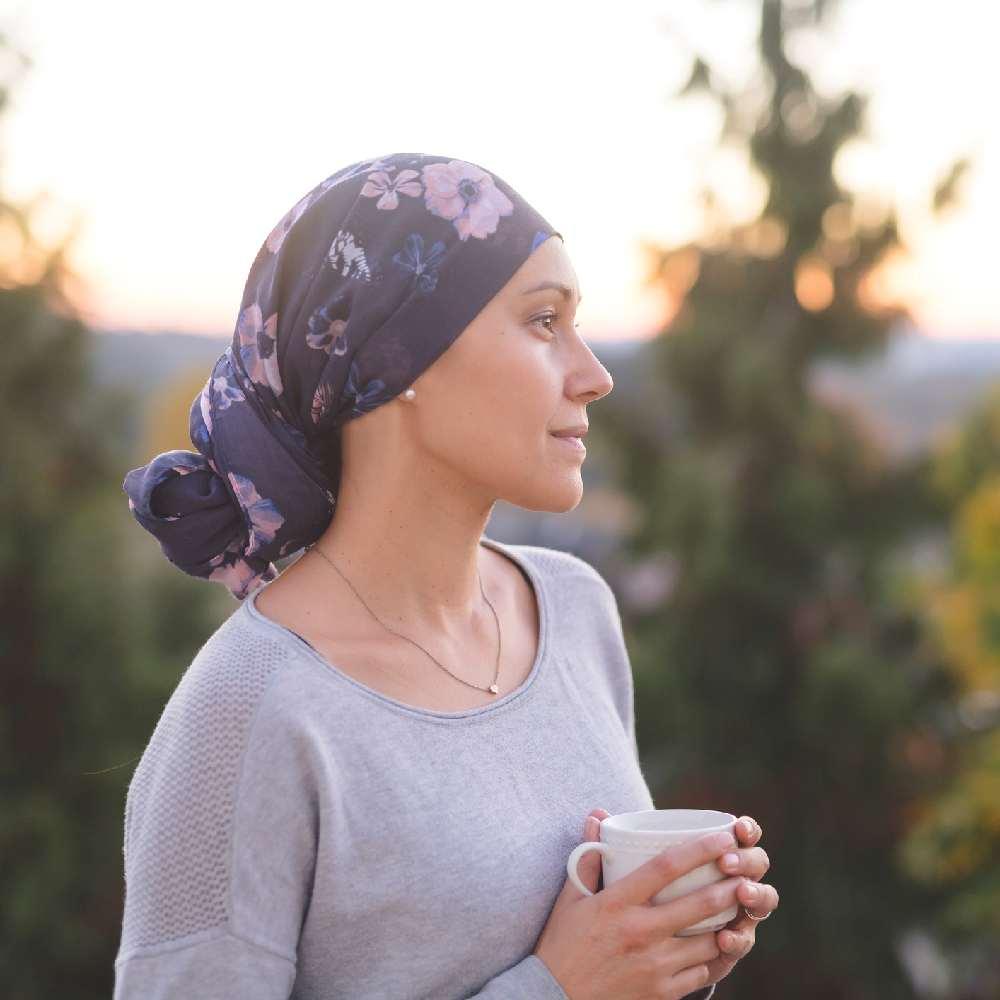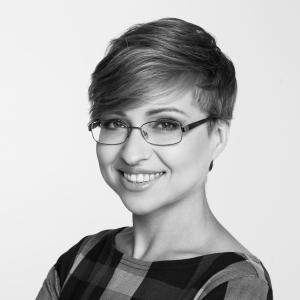
ongoing
Meaning-reconstruction process in cancerthe role of psychological flexibility. Intensive longitudinal and experimental studies

principal investigator / project leader
Ph.D. / Associate Professor
clinical psychologist specializing in health psychology
Full bio project value: PLN 731,284
funding source: National Science Center
discipline: psychology
location: Warsaw
duration: 2021 2022 2023 2024 2025 2026
Researchers from SWPS University’s Institute of Psychology, the Health and Coping Reserach Group, will investigate the process of meaning-making in patients suffering from cancer.
Project no.: 2020/39/B/HS6/01927, funded by the National Science Center.
Project Objectives
Cancer often causes many losses that oscillate over time and require adaptation. These losses can impede life goals and an individual's sense of meaning. Therefore, restoring meaning is an important element of adaptation to disease. Two mechanisms play a crucial role in the process of restoring meaning. The first one is related to the process of searching for meaning and finding explanations for adversities (i.e. meaning-making in disease). The second one refers to benefit finding (or meanings made) in disease (i.e. the perception of positive changes resulting from coping with disease), and is the result of searching for meaning.
The process of reconstructing meaning was described in the integrative meaning-making model of coping. However, meaning-making in disease is still poorly understood and its theoretical model has not received a comprehensive empirical verification that would consider its complexity, dynamics, reciprocity, and the intra-individual variability of the process (i.e., how a person changes in this process and how they fluctuate). So far, many studies have focused on positive changes arising from successful coping with disease. However, only a few studies examined what could lead to finding benefits in experiencing the disease, i.e., searching for and meaning-making in disease. Therefore we plan to carry out innovative research, combining observational and experimental methods, which will aim to deepen understanding of the meaning-making process in living with cancer.
We propose a new theoretical model, extending the meaning-making model by adding the model of psychological flexibility. Psychological flexibility is defined as pursuit of valued goals despite difficult circumstances and suffering. Creating flexibility should foster meaning-making in disease by building more flexible and workable meaning-making explanations of the disease. We are of the opinion that psychological flexibility may be the missing mechanism in the meaning reconstruction process. In order to verify the innovative extended model of meaning-making, we plan to conduct intensive longitudinal (i.e., daily-diary) and experimental studies in patients who have undergone a hematopoietic cell transplantation (HCT). The daily-diary study will allow us to verify the new model, i.e., examine the intra-individual variability, dynamics, and complex relationships between the elements of the extended model. The data obtained in the daily-diary study will be used to design the experimental randomized controlled trial (RCT) in which we will explicitly manipulate flexibility (using tools for creating flexibility established by the Acceptance and Commitment Therapy), and verify whether meaning-making and benefit finding change as a result of this manipulation. The experimental study will allow us to determine the cause-and-effect relationships and the mechanisms responsible for them in the extended meaning-making model.
Our goal is to better understand the process of meaning-making while suffering from cancer. We propose a new theoretical model that extends the meaning-making model by adding the model of psychological flexibility, which we then verify in an observational and experimental study. The collected data will provide information on the effectiveness of a program based on the Acceptance and Commitment Therapy (ACT) addressed to hematopoietic cell transplant patients. It will also allow to develop ready-made tools for patients seeking to enhance their well-being and restore a sense of meaning in the disease.

Kroemeke, Aleksandra
Principal Investigator
Role in the Faculty
{"funkcja-na-wydziale0":{"Funkcja":"","\u0141\u0105cznik":"","Nazwa w mianowniku":"Faculty of Psychology in Warsaw"}}
Role in the Department
{"funkcja-w-katedrze0":{"Funkcja":"Head","\u0141\u0105cznik":"of the","Nazwa w mianowniku":"Department of Health Psychology"}}
Role in the Institute
{"funkcja-w-instytucie0":{"Funkcja":"","\u0141\u0105cznik":"","Nazwa w mianowniku":"Institute of Psychology"}}
Specialization
clinical psychologist specializing in health psychology
First and last name
Aleksandra Kroemeke
Academic degree or title
Ph.D. / Associate Professor
Email
This email address is being protected from spambots. You need JavaScript enabled to view it.
Position
profesor uczelni
Role in the Research Center
{"funkcja-w-centrum0":{"Funkcja":"Head","\u0141\u0105cznik":"of the","Nazwa w mianowniku":"Health and Coping Research Group"}}
Ph.D. / Associate Professor Aleksandra Kroemekeclinical psychologist specializing in health psychology
Methodology
The daily-diary study will involve at least 150 patients. Participants will complete daily-diaries concerning daily distress, meaning-making, psychological flexibility, benefit finding and well-being, for ten days during their isolation following the HCT procedure. Then, a two-armed parallel randomized controlled trial (RCT) will be conducted (involving at least 75 patients in each arm). Participants of this study will be randomly assigned to the experimental group (ACT manipulation) or the control group (neutral cognitive task within minimally enhanced usual care control conditions). Experimental manipulation will last ten days during isolation after the HCT procedure, and its effects will be evaluated at three intervals – immediately after, one month and three months after the completion of manipulation. Participants of both studies will be recruited among patients with hematologic or lymphatic cancers, who are eligible for autologous HCT (transplantation of their own hematopoietic cells). Statistical analysis of the data will be conducted using the latest and most advanced techniques, i.e., the multilevel and dynamic structural equation modeling and latent curve growth modeling.
Research team

Dudek, Joanna
ACT program
Role in the Faculty
{"funkcja-na-wydziale0":{"Funkcja":"Dean's Representative for Electives (New Psychology Program)","\u0141\u0105cznik":"at the","Nazwa w mianowniku":"Faculty of Psychology in Warsaw"}}
Role in the Department
{"funkcja-w-katedrze0":{"Funkcja":"","\u0141\u0105cznik":"","Nazwa w mianowniku":"Department of Behavioral Psychology"}}
Role in the Research Center
{"funkcja-w-centrum0":{"Funkcja":"","\u0141\u0105cznik":"","Nazwa w mianowniku":"DecisionLab: Center for Behavioral Research in Decision Making"}}
Specialization
psychologist, specializing in ACT and FAP therapy
First and last name
Joanna Dudek
Academic degree or title
Ph.D. / Assistant Professor
Email
This email address is being protected from spambots. You need JavaScript enabled to view it.
Ph.D. / Assistant Professor Joanna Dudekpsychologist, specializing in ACT and FAP therapy

Kijowska, Marta
Research Assistant
Specialization
doctoral student
First and last name
Marta Kijowska
Academic degree or title
M.A.
M.A. Marta Kijowskadoctoral student

Sobczyk-Kruszelnicka, Małgorzata
Medical Consultant
Specialization
oncologist
First and last name
Małgorzata Sobczyk-Kruszelnicka
Academic degree or title
M.D.–Ph.D.
Email
This email address is being protected from spambots. You need JavaScript enabled to view it.
Institute
Health & Coping Research Group
M.D.–Ph.D. Małgorzata Sobczyk-Kruszelnickaoncologist
Contact: This email address is being protected from spambots. You need JavaScript enabled to view it.
Associated Researcher

British National Health Service, Herefordshire, UK Read more
Dr. Owen has authored the following books: Living with the Enemy: Coping with the stress of chronic illness using CBT, mindfulness and acceptance, and Facing the Storm: Using CBT, Mindfulness and Acceptance to Build Resilience When Your World's Falling Apart.
Practical application of results
We believe that the presented multi-method project will fill in the gaps in health psychology in terms of understanding the process of reconstruction and meaning-making in cancer and understanding the mechanisms of this process (thanks to the extension of the integrative model of meaning-making by the psychological flexibility model), and thus will help to develop this academic discipline. Moreover, information collected during the study will provide data on the effectiveness of ACT-based interventions for creating flexibility, meaning-making in cancer and (generally) for the well-being of patients treated with HCT.